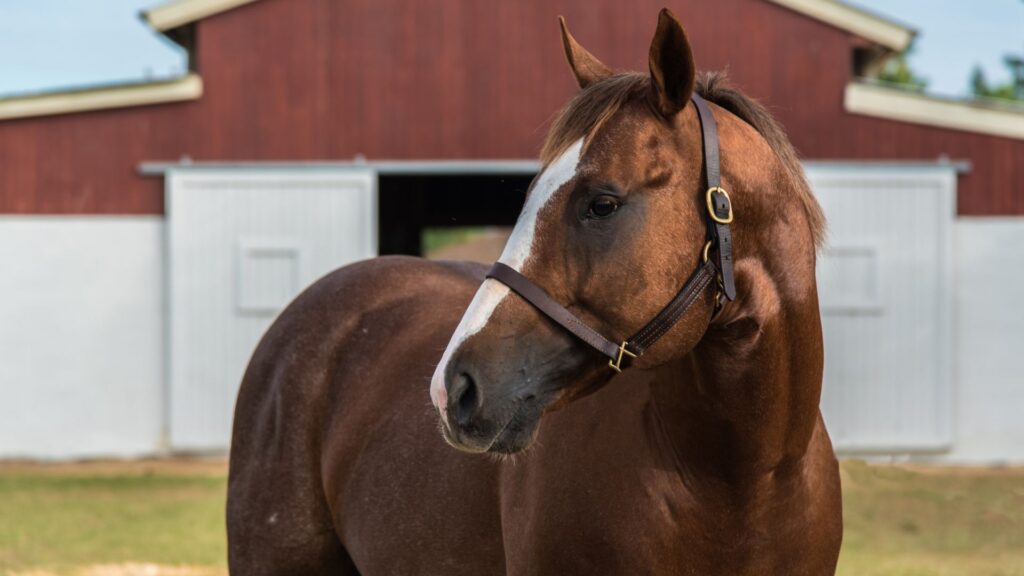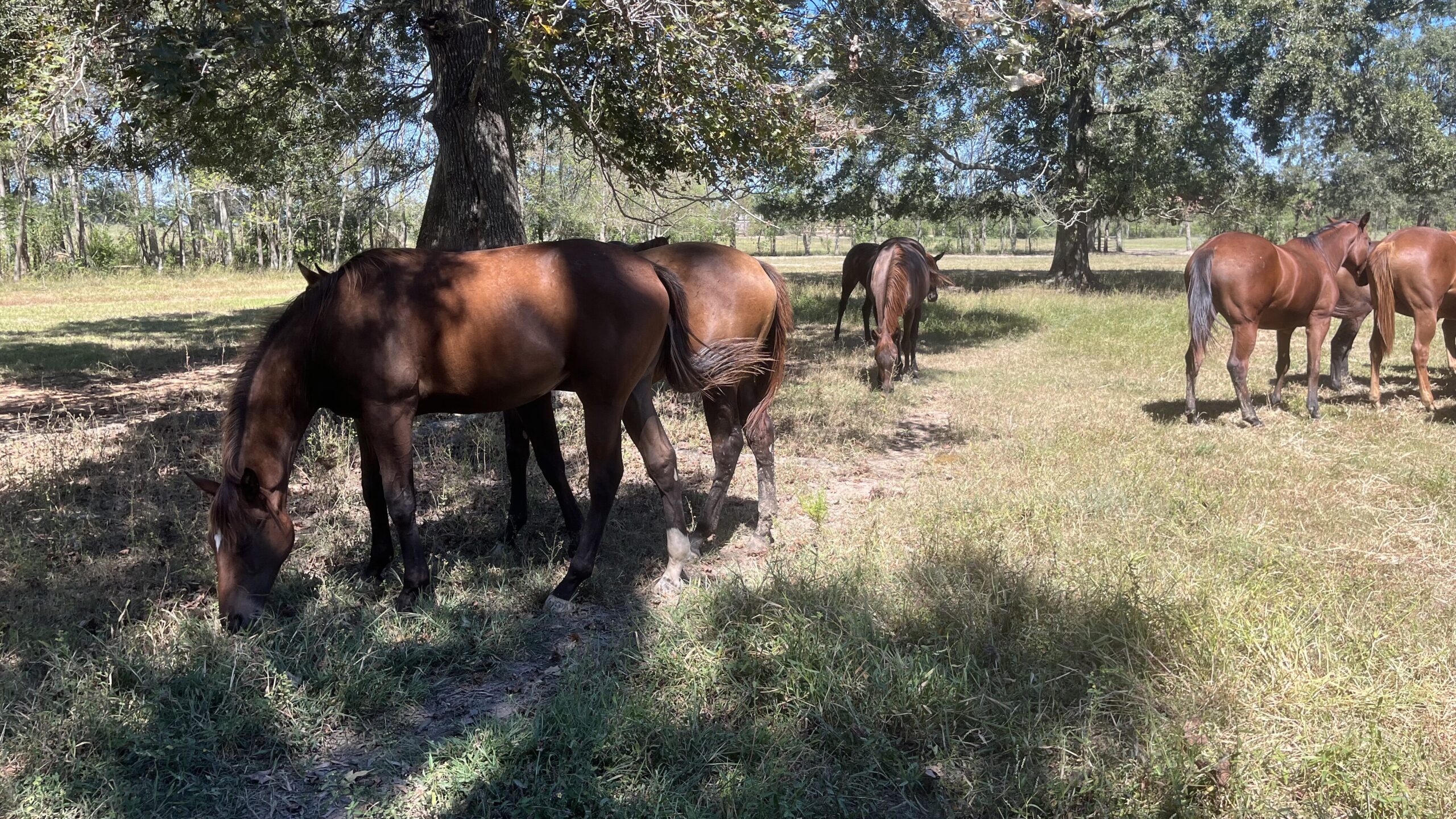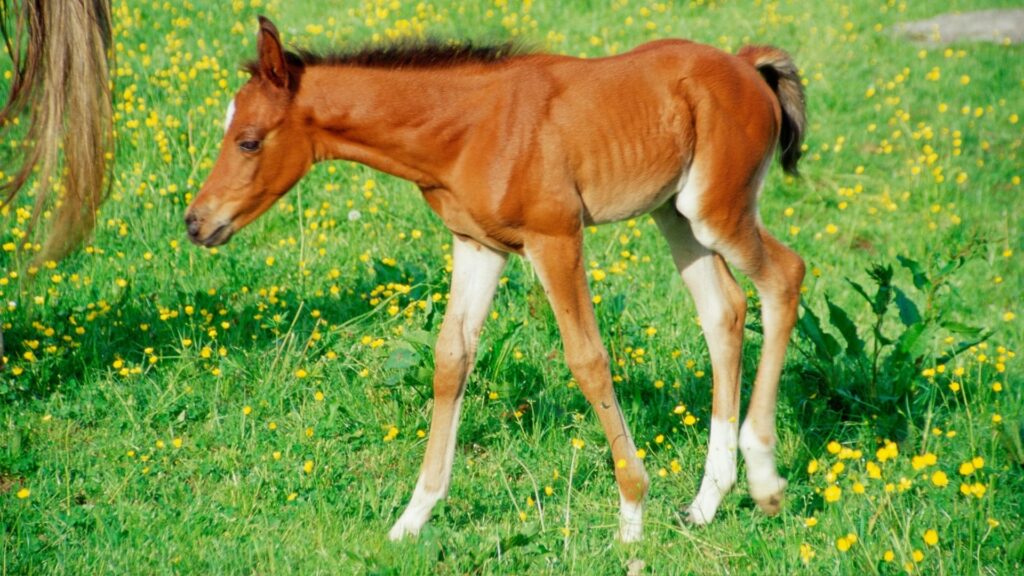Last updated: April 17, 2023
Starting a horse breeding business can be an exciting way for horse owners like us to make money while doing something we’re passionate about. Having a well-structured business plan is essential for our success, as it will guide us in making informed decisions and help us overcome any challenges that may arise along the way.
Horse breeding offers a variety of profitable opportunities, from providing horses for racing and showjumping to recreational and therapeutic riding programs. With dedication and the right planning, we can find our niche in this industry and turn our love for horses into a sustainable and rewarding business.
In this blog post, we’ll break down the basics of creating a successful horse breeding business plan, making it easy to understand for fellow horse owners. By the end, you’ll have a clear roadmap to follow as you embark on this exciting journey to transform your passion into a thriving business. Let’s get started and create a plan that works for you.
Understanding the Horse Breeding Industry

The horse breeding industry is a diverse and thriving sector, encompassing the production of horses for various purposes such as racing, showjumping, dressage, recreational riding, and therapeutic programs. It’s a global market, with breeders, trainers, and buyers all working together to create high-quality horses that meet the specific needs of different segments.
Some of the key players in the industry include breeders, who are responsible for producing horses with desirable traits, and trainers, who help develop their skills and performance. Additionally, buyers play a crucial role, as they create demand for horses that meet specific criteria. The market can be segmented based on the purpose of the horses:
- Racing industry: This segment focuses on producing thoroughbreds and other breeds suitable for racing.
- Showjumping and dressage: Breeders in this segment work to create horses with the agility, strength, and grace needed for these competitive disciplines.
- Recreational riding: This market caters to casual riders looking for well-mannered and versatile horses for leisure activities.
- Therapeutic riding programs: Horses bred for this segment are selected for their calm temperament and suitability for use in therapy and rehabilitation programs.
- Western riding activities: Horses bred for these events are smart, athletic, and willing.
The horse breeding industry continuously evolves, with a few notable trends shaping its future. One such trend is the increased focus on ethical breeding practices and animal welfare, as more breeders prioritize the well-being of their horses. Additionally, advances in genetics and breeding technology are helping breeders produce horses with improved health and performance.
Sustainability is another growing concern, with many breeders implementing eco-friendly practices to minimize their environmental impact. Lastly, the industry is becoming more globalized, with international partnerships and collaborations becoming more common.
These trends suggest a positive outlook for the horse breeding industry, with ample opportunities for growth and innovation. As a prospective breeder, understanding these trends can help you identify potential niches and adapt your business to meet the evolving needs of the market.

Identifying Your Niche and Target Market
One of the first steps in starting a successful horse breeding business is choosing a breed or breeds to specialize in. Consider factors such as your personal interests, experience with specific breeds, and market demand. Some popular breeds include Thoroughbreds, Quarter Horses, Arabians, and Warmbloods, but you may also opt for less common breeds if you identify a unique market opportunity.
Next, you’ll want to identify the segment of the market you’ll cater to. This will help guide your breeding program and marketing efforts. Consider the following market segments:
- Racing industry: If you’re interested in breeding racehorses, you’ll need to focus on breeds known for their speed and stamina, such as Thoroughbreds or Standardbreds.
- Showjumping and dressage: This market segment requires horses with exceptional athleticism, balance, and grace. Warmblood breeds and sport horse crosses are often popular choices for these disciplines.
- Western riding activities: Breeding for disciplines such as reining, cutting, and barrel racing requires horses with agility, quickness, and a strong work ethic. Common breeds for these activities include Quarter Horses, Appaloosas, and Paint Horses.
- Recreational riding: For this market, breed horses that are versatile, easy-going, and suitable for a variety of riding styles. Quarter Horses, Arabians, and various gaited breeds are popular choices.
- Therapeutic riding programs: Breeding horses for therapy programs require a focus on temperament, with calm, patient, and gentle horses being ideal candidates. Breeds like Haflingers, Norwegian Fjords, and some draft horse crosses can excel in this role.
By carefully considering these market segments and choosing the one that aligns with your interests and expertise, you can create a breeding program tailored to meet the specific needs of your target audience.
Assessing competition and finding your unique selling point
To differentiate your horse breeding business from the competition, you’ll need to identify your unique selling point (USP). Start by researching other breeders in your chosen niche and analyzing their strengths and weaknesses.
Determine what sets your breeding program apart, whether it’s your focus on a specific breed, a commitment to ethical and sustainable practices, or offering exceptional customer service and support. By establishing a clear USP, you’ll be better positioned to market your business effectively and attract clients who value what your breeding program has to offer.

Developing a Comprehensive Business Plan
Starting a horse breeding business requires thorough preparation and a solid foundation. Developing a comprehensive business plan is a crucial step in setting yourself up for success. A well-structured plan not only helps you organize your thoughts, ideas, and goals but also serves as a roadmap to guide your business through its initial stages and future growth.
In this section, we’ll delve into the key elements that constitute a comprehensive business plan for your horse breeding venture, ensuring that you’re well-equipped to tackle the challenges and opportunities that lie ahead.
A. Executive summary
The executive summary is a concise overview of your horse breeding business plan. It should highlight the most important aspects of your business, including your mission statement, niche, target market, and unique selling point. This section is crucial, as it will be the first thing readers see and should grab their attention.
B. Company description and goals
In this section, provide a detailed description of your horse breeding business, including its structure, ownership, and core values. Clearly outline your short-term and long-term goals, such as expanding your breeding program, winning prestigious awards, or becoming a recognized leader in your niche.
C. Market analysis
The market analysis section should provide a thorough understanding of the horse breeding industry, focusing on your niche and target market. Include information on market size, trends, and growth potential. Additionally, analyze your competition, identifying their strengths and weaknesses and how your business can stand out.
D. Marketing and sales strategy
Outline your marketing and sales strategy, including how to promote your business and reach your target audience. Consider various marketing channels such as social media, content marketing, and industry events. Discuss your pricing strategy and how you’ll manage client relationships, from initial inquiries to after-sales support.
E. Operational plan
- Location and facilities: Describe your ideal location and the facilities you’ll need, such as barns, pastures, and arenas. Consider accessibility, available resources, and proximity to clients and suppliers.
- Staffing and management structure: Outline your staffing requirements, including roles and responsibilities for each team member. Detail your management structure, explaining how you’ll oversee daily operations and maintain clear lines of communication.
- Veterinary care and horse welfare: Explain how you’ll ensure the well-being of your horses, including regular veterinary care, proper nutrition, and exercise. Describe your approach to ethical breeding practices and maintaining a safe, clean environment for your horses.
F. Financial projections and funding requirements
Provide financial projections for your horse breeding business, including startup costs, operating expenses, and projected revenue. Detail your funding requirements and how you plan to secure financing, whether it’s through personal savings, loans, or investors. Include a break-even analysis to show when your business is expected to become profitable.
G. Risk analysis and contingency planning
Identify potential risks and challenges your horse breeding business may face, such as changes in market demand, natural disasters, or health-related issues. Develop contingency plans to address these risks, explaining how you’ll mitigate their impact and ensure the long-term success of your business.
Legal and Regulatory Considerations
Choosing the appropriate business structure is crucial for legal and financial reasons. Common structures include sole proprietorships, partnerships, limited liability companies (LLCs), and corporations. Consult with a legal professional to determine the best structure for your horse breeding business. Once decided, register your business with the appropriate government authorities.
Obtaining necessary permits and licenses
Research the permits and licenses required for operating a horse breeding business in your region. This may include a business license, zoning permit, or agriculture-specific permit. Be sure to obtain all necessary documentation before commencing operations to ensure compliance with local laws and regulations.
Insurance requirements
Insurance is crucial for protecting your business from potential risks and liabilities. Obtain the necessary insurance coverage, including general liability, property, workers’ compensation, and equine-specific policies. Consult with an insurance agent experienced in the horse industry to ensure you have the appropriate coverage for your unique needs.
Understanding tax implications
Running a horse breeding business involves various tax implications, including income tax, sales tax, and property tax. Consult with a tax professional to understand your obligations and ensure compliance with all relevant tax laws. Keep accurate financial records and stay up-to-date with any changes in tax regulations that may affect your business.
Animal welfare and breeding regulations
Adhering to animal welfare and breeding regulations is vital for maintaining a reputable and responsible horse breeding business. Familiarize yourself with local, regional, and national laws governing the treatment of horses, including proper care, housing, and breeding practices.
Additionally, stay informed about industry-specific regulations and guidelines, such as those established by breed associations or equine welfare organizations. Prioritizing the welfare of your horses is not only ethically important but also essential for the long-term success of your business.

Marketing and Promoting Your Horse Breeding Business
In the competitive world of horse breeding, having exceptional horses is only part of the equation. Effectively marketing and promoting your business is essential to attract potential clients, building a strong reputation, and, ultimately, generating sales.
A. Building a strong brand
A strong brand is essential for attracting clients and setting your horse breeding business apart from competitors. Develop a clear and consistent brand identity that reflects your business’s values, mission, and unique selling points. Choose a memorable name, design a distinctive logo, and establish a cohesive visual identity across all marketing materials.
B. Creating a professional website and online presence
A professional website serves as the digital face of your business, allowing potential clients to learn about your breeding program, view photos of your horses, and contact you for inquiries. Ensure your website is user-friendly, easy to navigate, and optimized for search engines. Also, consider creating a blog to share updates, news, and educational content that showcases your expertise in the industry.
C. Engaging in social media and content marketing
Social media platforms such as Facebook, Instagram, and Twitter are powerful tools for reaching a wider audience and engaging with potential clients. Share captivating images, videos, and stories of your horses to showcase their personalities, achievements, and breeding potential.
Content marketing through blog posts, articles, and newsletters can also help establish your business as a knowledgeable and reliable source of information in the horse breeding industry.
D. Networking within the equestrian community
Building relationships within the equestrian community can open doors to new opportunities and help establish your reputation in the industry. Attend local horse shows, competitions, and club meetings to meet fellow breeders, trainers, and potential clients. Join industry associations and online forums to stay informed about trends, share ideas, and collaborate with other professionals.
E. Participating in industry events and trade shows
Participating in industry events and trade shows offers an excellent opportunity to showcase your breeding program, connect with potential clients, and network with other industry professionals.
Ensure your booth or display is eye-catching and professional, featuring high-quality images, informative materials, and engaging content about your horses and services. Take advantage of these events to learn from experts, gain insights into the latest trends, and stay competitive.
Explore a thriving horse breeding facility’s success story in this insightful YouTube video.
Maintaining Long-Term Success
A successful horse breeding business can adapt to changes and overcome challenges. Regularly evaluate your business plan and make necessary updates to reflect your current goals, market conditions, and any new opportunities. This proactive approach will help you stay focused, identify areas for improvement, and maintain a clear vision for the future of your business.
The horse breeding industry constantly evolves, with new trends and innovations shaping its landscape. Stay informed about the latest developments in breeding technology, genetics, and horse care by reading industry publications, attending conferences, and joining professional associations. Embracing new ideas and staying ahead of the curve can give your business a competitive edge in the market.
Continued education and professional development are essential for staying knowledgeable and improving your skills as a horse breeder. Attend workshops, seminars, and training courses to expand your expertise in breeding techniques, horse nutrition, and veterinary care.
Learning from industry experts and other experienced breeders can help you refine your breeding program and elevate the quality of your horses. Building and maintaining strong relationships with clients and industry partners is crucial for the long-term success of your horse breeding business.
Provide exceptional customer service and support, from the initial inquiry to after-sales assistance. Cultivate relationships with veterinarians, trainers, and other professionals in the equestrian community to create a network of trusted partners who can contribute to your business’s growth and reputation.
The welfare of your horses should always be a top priority. Adhere to ethical breeding practices and prioritize the health and well-being of your animals. Ensure your horses receive proper nutrition, veterinary care, and exercise, and maintain a clean and safe environment for them to thrive in.
By prioritizing horse welfare, you’ll not only protect the reputation of your business but also contribute to the overall sustainability and integrity of the horse breeding industry.

Conclusion
Creating a successful horse breeding business requires careful planning, dedication, and a deep understanding of the industry. By developing a comprehensive business plan, identifying your niche, and staying informed about market trends, you can set your business on the path to success.
Prioritize the welfare of your horses and foster strong relationships within the equestrian community to build a reputable and sustainable business. As you grow and adapt to the ever-evolving landscape of the horse breeding industry, remember to continually evaluate your goals and strategies, invest in your professional development, and maintain a strong focus on ethics and horse welfare.
With passion, perseverance, and a well-executed plan, your horse breeding business can flourish and become a source of pride and fulfillment for years.
FAQs
Is horse breeding a profitable business?
Horse breeding can be a profitable business if managed effectively and strategically. Success depends on breeding quality horses, targeting the right market segment, effective marketing, and maintaining a cost-efficient operation. However, it is important to note that profitability may take time and requires a substantial initial investment, dedication, and expertise in the field.
What is the most profitable horse to breed?
It is difficult to pinpoint a single “most profitable” horse breed, as profitability varies based on market demand, breed popularity, and the specific discipline or niche catered to. However, Thoroughbreds and Warmbloods are often the most lucrative, depending on quality and marketing.

About the Author: Miles Henry
Lifelong Horseman | Racehorse Owner | Published Author
Miles Henry brings over 25 years of hands-on experience training and owning Thoroughbred racehorses. Raised with Quarter Horses and Appaloosas, he’s spent a lifetime learning from horses—on the track, in the barn, and in the field. Today, he runs a small but successful racing stable in Louisiana and shares real-world insights on HorseRacingSense.com, helping horse owners, fans, and bettors navigate the sport with confidence.
📚 Books: View Miles’s books on Amazon »
🎧 Podcast Guest: Animal Tales Ep. 32 |
YouTube Interview
📩 Newsletter: Sign up for racing tips and horse care advice »
🔗 Follow Miles:
Twitter |
Facebook |
YouTube


